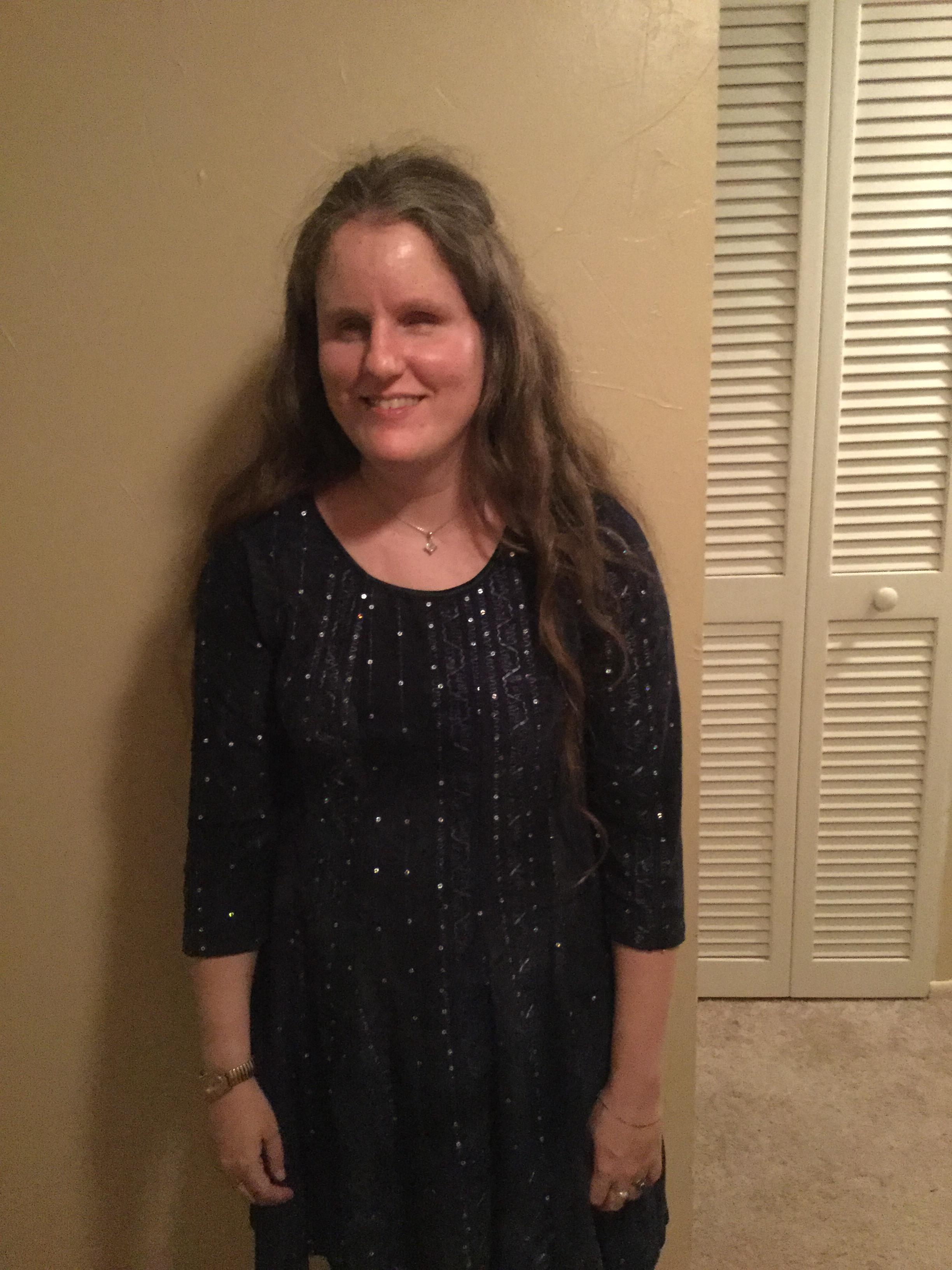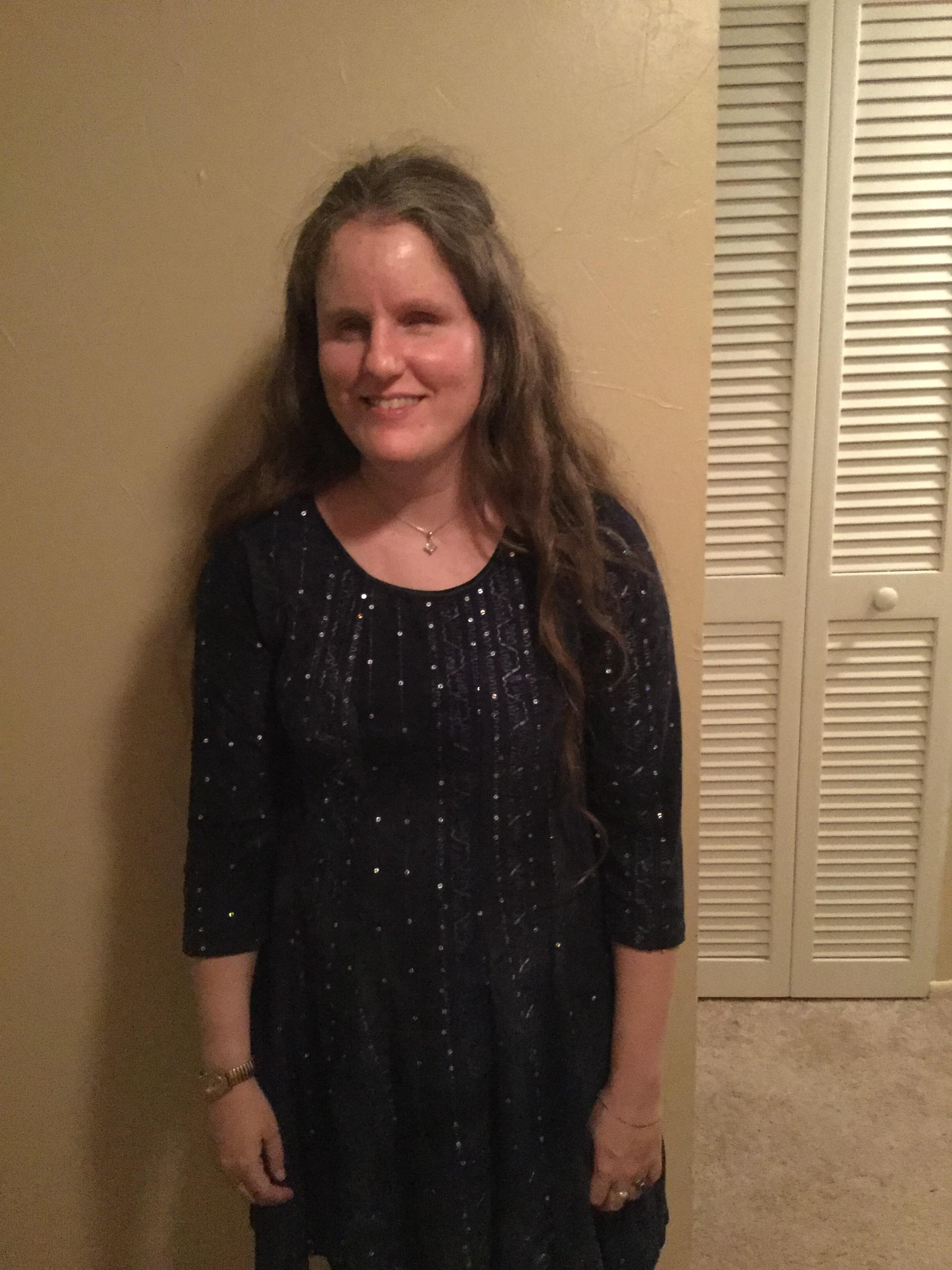 While Saint Leo University alumna Karen Christie might be without sight, she still has a vision to publish her own book someday.
While Saint Leo University alumna Karen Christie might be without sight, she still has a vision to publish her own book someday.
The 34-year-old native of Sarasota, Fla. is proud to still reside in her hometown south of Tampa. Her blindness was caused by retinopathy of prematurity (ROP).
"I was due in May but came very early in January, and I was only one pound, 11 ounces when I was born," she confides. "I have no light perception at all. For me, I'm so used to it, and I don't even see myself as having a disability. I can't imagine what it would be like to see."
One of triplets, her sister, Lesley, only survived three months, while her brother, Patrick, lived to just 17. Growing up, she was introduced to the white cane at age five but didn't start using one regularly until she turned seven. Her parents had her in mainstream public schools.
"What I liked about going to public school was that I was around a nice mix of students of all abilities, and I got to make friends with sighted kids."
Learning the Saint Leo Landscape
Christie enrolled at Saint Leo in 2002 after her time at Cardinal Mooney Catholic High School in Sarasota.
"We figured the Saint Leo campus was only about an hour and 20 minutes from home," she says. "At first, we looked at some other schools, but Saint Leo had some connections to Cardinal Mooney where my dad was the principal for 19 years and even held other roles there before that. They also assured us that everyone was very accommodating and friendly."
She had an orientation and mobility instructor from the Lighthouse for the Visually Impaired and Blind come out and work with her to learn the lay of the land in her dorm and on campus.
"I remember working with this instructor when I started my freshman year. She would come pretty early in the morning, and we'd record my lessons on a recorder. She showed me exactly how my dorm room was laid out and how to get around other parts of the dorm and campus."
She finished her bachelor's in 2006, majoring in English with a concentration in creative writing.
"It was a great experience," she says. "One of the things I loved most about going there was that you're a name and not a number. Other schools have so many students packed into classrooms. The campus was small enough that you could get to know a lot of people, and I still keep up with some of those friends I made in college today."
During her undergraduate studies, she lived on campus and was very happy with how they accommodated her housing location.
"They let me have a dorm room in Henderson Hall close to where the cafeteria was. It was also not too far from Lewis Hall and Crawford Hall where I had a lot of my classes."
In her recollection, she says all of her Saint Leo professors provided any assistance she needed in making her coursework fully accessible.
"I still keep in touch with Dr. Mark Edmonds who retired about 10 years ago," she says. "His nickname is Tiger, and he was an English professor, and he has written several books in the creative nonfiction genre. We've exchanged countless letters since I graduated."
She also remembers Drs. Kurt Van Wilt, Mary Spoto, Kathryn Duncan and Jack McTague for having unique classes and for their support.
Plus, the help of Dr. Karen Hahn in the university's accessibility office made earning a degree a smoother process for Christie.
"She was very helpful and even got me a Braille Blazer printer," she recalls. "I was able to print out things in Braille like my tests and other assignments. They also got me screen reader software for my computer, which spoke what I typed and what was on the screen. They tried to give me the tools to help me read everything myself, which made me feel good because of that independence. If they had to, some of my fellow students would read something to me aloud."
In addition to her academics, she sang in the student chorus on campus and says she has perfect pitch. She wrote for the Lion's Pride student newspaper as well.
"I don't think I could have made a better decision on where I went to college," she says.
Using the Written Word
From her standpoint, the concept of writing allows for lots of flexibility and creativity.
"When it comes to writing, I say there's really no wrong way to do it. Every author has their own style, and you can put your own little flair on how something is written."
During and after college life, Christie has enjoyed several opportunities when it comes to writing. She has contributed to Dialogue magazine, some Catholic publications and even done some writing for ads in the Bradenton Herald newspaper. She even dabbled in radio, doing voiceover work and writing copy for commercials for Clear Channel Communications in the Sarasota-Bradenton market.
Creating Connections
For nearly a decade, she has been a member of the Sarasota Council of the Blind, which is a local chapter of the Florida Council of the Blind and the nationwide American Council of the Blind umbrella organization.
"I started going to chapter meetings about 8 or 9 years ago," she says. I thought it might be neat to meet other visually impaired people and make some connections."
Joining this group has given her more chances to write. She has contributed several articles to the White Cane Bulletin, a statewide publication of the Florida Council of the Blind, with updates on the meetings and events of her Sarasota chapter.
Looking Ahead
Perhaps she is most proud of the children's short stories she has authored, particularly those revolving around Jenny, a character who is a young blind girl.
"I want to give young readers a chance to learn about what it's like to be a blind child," she says.
Her ultimate goal is to compile these stories into a book that she'd like to have published one day.
Photo credit: The photograph included in this blog post was provided by Karen Christie and is used with permission.
#SaintLeoAlumni

 While Saint Leo University alumna Karen Christie might be without sight, she still has a vision to publish her own book someday.
While Saint Leo University alumna Karen Christie might be without sight, she still has a vision to publish her own book someday.